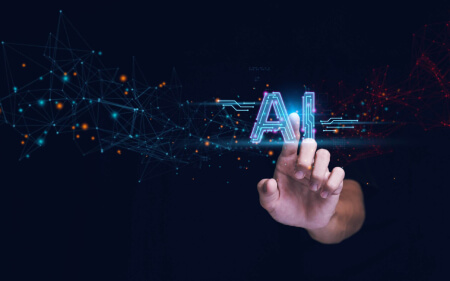The Role of AI in Invention : Exploring Possibilities and Pitfalls
By | | March 21, 2024
Introduction:
Innovation and invention have long been the hallmark of human progress. With the advent of Artificial Intelligence (AI), the landscape of creativity and invention has evolved. While AI doesn’t “invent” in the traditional sense, its capabilities have ushered in a new era of innovation, influencing various industries and fields.
Pros of AI in Invention:
- Pattern Recognition and Insight: AI excels at recognizing patterns within vast datasets, enabling it to identify connections or solutions that might elude human observation.
- Efficiency and Optimization: AI algorithms can swiftly explore massive design spaces or solution sets, optimizing processes and finding more efficient solutions than conventional methods.
- Augmenting Human Creativity: AI acts as a tool to assist human inventors, providing insights, suggesting novel approaches, and accelerating experimentation and testing.
- Automated Discovery in Specific Domains: In constrained domains with clear rules (e.g., material design), AI can explore various combinations to discover new solutions or materials.
Cons of AI in Invention:
- Lack of Genuine Creativity: AI lacks true creativity, originality, and the ability to comprehend abstract or broader contexts inherent in human inventive thinking.
- Biases and Limitations: AI models are prone to biases present in their training data, potentially leading to biased or flawed suggestions, hindering genuine innovation.
- Ethical Concerns: The use of AI in invention raises ethical questions regarding intellectual property, accountability, and the role of AI in shaping the future of innovation.
- Dependency and Overreliance: Overreliance on AI for inventive tasks might stifle human creativity and innovation, reducing the diversity of thought and ideas.
Conclusion:
AI undeniably plays a significant role in augmenting and enhancing the inventive process. Its strengths in pattern recognition, optimization, and assisting human creativity have led to remarkable advancements. However, AI’s limitations in genuine creativity, biases, and ethical considerations necessitate a cautious approach. The synergy between AI and human inventors, balancing AI’s capabilities with human ingenuity, stands as a promising avenue for groundbreaking innovation in the future.
RECENT POSTS
-
-
The Game Changer in IT: The Advent of Neuromorphic Computing
Thursday, July 11, 2024 -
The Rise of AI-Driven Creativity: How Artificial Intelligence is Revolutionizing Art and Design
Wednesday, July 3, 2024 -
Exploring the Metaverse: The Next Frontier in Digital Interaction
Thursday, May 30, 2024 -
Revolutionary Tech Invention: The Quantum Battery
Wednesday, May 22, 2024 -
The Role of AI in Invention : Exploring Possibilities and Pitfalls
Thursday, March 21, 2024 -
India 5000 Best MSME Awards
Tuesday, October 10, 2023 -
Major Health-Tech Drifts to Predict in 2022
Friday, February 4, 2022 -
Kuber Video Banking - A Revolutionary FinTech Transformation by RankTech
Monday, January 31, 2022 -
VIDEO BRIDGE - Experience India's First 2-in-1 Webinar & Video Collaboration Platform
Thursday, January 20, 2022

